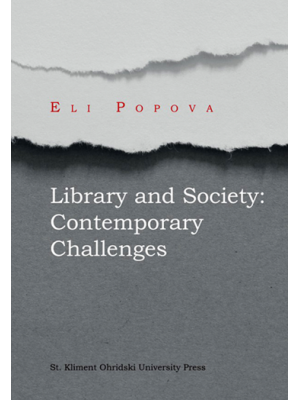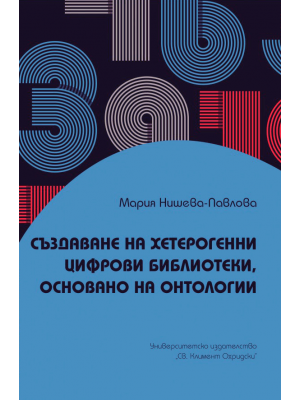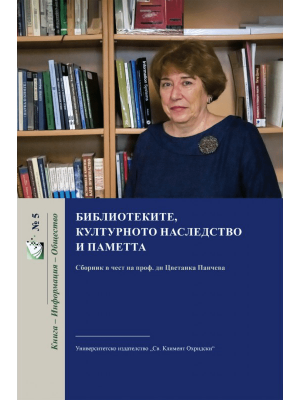Shopping Cart
0 item(s) - 0.00лв
Global information infrastructure: The role and mission of libraries in the ever changing world
Global information infrastructure: The role and mission of libraries in the ever changing world
Глобална информационна инфраструктура. Роля и мисия на библиотеките в променящия се свят
Language: Bulgarian with a summary in English; Category: Library science
Information is changing the world! Information and information and ICT (information and communication technologies) change adjustments, ways of thinking and life of people in society. They are new “secret pieces” in the foundation of the “knowledge universe”. They are in the foundation of the global information infrastructure (GII) where we are looking today. We are getting more and more connected and dependent on GII. Telecommunications, information systems and computers are worldwide, transmitting texts, pictures, voice and data across international boundaries. The systems based on technologies and information are supporting the economy infrastructure. GII is in the foundation in the current integration of economy, culture and society, this is happening all around the world. It allows free transferring of knowledge, information, ideas, data, that are used in the name of freedom and expanding of the democratic processes for citizens of the World.
Libraries have to answer objectively to the popping questions about their tasks and future changes, no matter how threatening they are. Library organizations are in very serious competition for influence with other subjects on the market of information. They do not have to dispute only about the new functions. It is necessary to save these of them, which were laid at their establishment and give them guarantees to correctly serve people and our civilization. Part of these functions is related to archive, education, social information, information about producer and customer, protection of different groups of users. Libraries are essential part of important infrastructure, which supports education, working places and increasing of society. They offer comfortable access to information in all kinds such as manuscripts, prints, audio-visual and digital materials. They can support formal education, informal education and lifelong learning, cultural memory protection, traditional local knowledge and national cultural and scientific inheritance. In times, when the national information politics are aimed at developing telecommunications and providing high-speed nets, libraries are natural partners for providing public access to ICT and shared information resources...
| Details | |
| Publisher | St. Kliment Ohridski University Press |
| Language | Bulgarian with a summary in English |
| Pages | 480 |
| Illustrations | b/w figures |
| Binding | haedback |
| ISBN | 978-954-07-3719-5 |
| Creation date | 2014 |
| Size | 16 х 24 cm |
Write a review
Your Name:Your Review: Note: HTML is not translated!
Rating: Bad Good
Enter the code in the box below:













